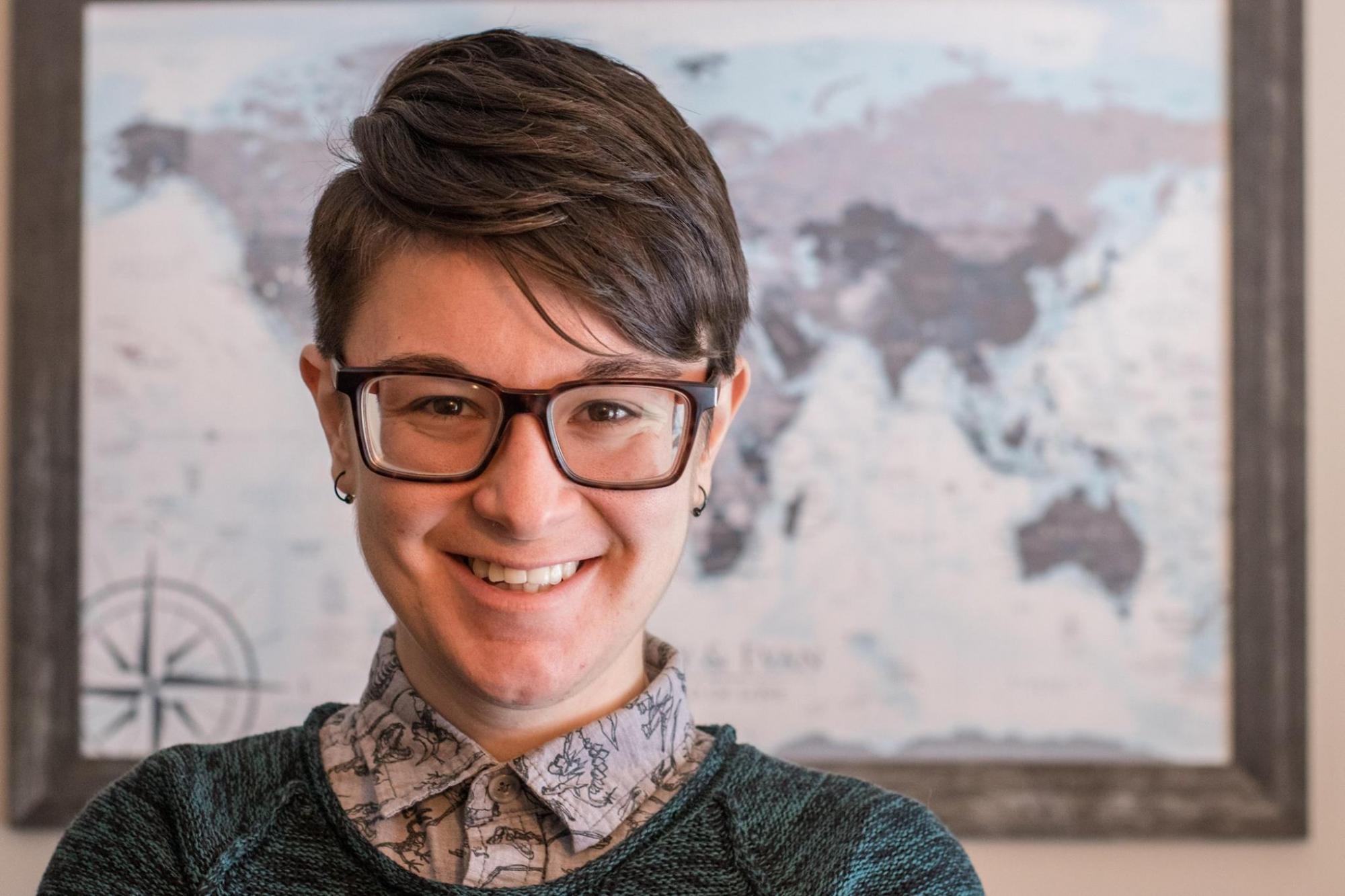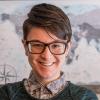Meet Teaching Artist Evan Ramzipoor


Evan Roxanna Ramzipoor is a writer based in California. She has given talks on underground literature at the GLBT Museum, Ohlone College, and USC and has taught writing at UC Berkeley and Hugo House. Her work has been featured in McSweeney’s and Salon. The Ventriloquists is her first novel.
For more, follow Evan on Twitter. Her current classes are listed on her artist bio page.
***
When did you start teaching? What path—career or otherwise—brought you here?
I started teaching in college to make some extra cash, but I quickly fell in love with the classroom. Once my first novel was released, I started giving talks about the craft of writing, and I decided to look for ways to teach more often. I currently teach for the Loft and for Hugo House. To me, writing and teaching are indistinguishable: the goal is to create opportunities for joy, surprise, and revelation.
How would you describe your teaching style?
My teaching style aims to dismantle the barriers that prevent writers from pursuing their goals. Writers are routinely told that because our work (or personal history) does not fit into a box, then we have no right to the craft. In my classroom, there is no box. At the beginning of each class, I make it clear to my students that we are all writers and we're all on this adventure together. We each have the right and the responsibility to challenge conventions, push boundaries, ask questions, and enjoy the craft.
When it comes to imagining and creating classes, where do your ideas come from? What in particular inspires you?
Whenever I’m coming up with a class idea, I try to think about subjects that my students and I will find rewarding. It has to be something that I love talking about but also something that writers struggle with. I usually find myself drawing inspiration from books I’ve read and loved recently. For example, I decided to do a class on writing kids for adult literature after reading The Little Friend by Donna Tartt, who writes one of the most compelling and realistic child protagonists I’ve ever read.
What's the ideal environment for your classroom? What atmosphere are you hoping to establish?
I work to create a space in which everyone feels ownership over stories—the ones we read and the ones we write. Beyond that, I always hope that it’s a fun, relaxed atmosphere. At the end of the day, we write because we love it. It isn’t always easy, but it’s always rewarding. The classroom should reflect the joy we feel when we write.
Regardless of what your class is specifically focusing on, what's the main goal you have for your students?
I have two mains goals, a practical one and a philosophical one. On a practical level, I aim to give my students a toolbox they can use to improve their own work. It might be a framework, a series of questions, or a memorable passage that changes the way they think about a particular skill. On a philosophical level, I try to empower my students to develop their own goals for their writing—and to show them that these goals are achievable.
What are goals you have for yourself? These could be teaching goals, writing goals, career goals, community goals, etc.
As a queer writer, I’m always looking for ways to help diversify our bookshelves. That means writing fiction that is as diverse as our readers and working to empower other writers. Other than that, I have a few fun things I want to accomplish, like writing a novel about Mary Shelley and giving a reading at the Strand and City Lights Books.
What have been some of your own favorite educational experiences?
Every time I read something, it’s an educational experience. My favorite experiences leave me wondering how a writer pulled something off and eager to reverse-engineer their methods.
In the classroom, my favorite experience actually had nothing to do with creative writing. I took a required course in statistics, a class that I’d dreaded and expected to fail. To my shock, the instructor began the course by telling us that this was a writing class. Statistics, she explained, is just another form of storytelling. If you learn to close read quantitative data, you can uncover the stories behind the numbers. The class completely transformed the way I see the world.
To you personally, what is the most important part of the literary arts?
When I was a kid, I was obsessed with A Series of Unfortunate Events. Those books provided something I needed at a time when I could not have articulated that need. As an adult, I had the extreme pleasure of sharing my debut novel The Ventriloquists with Daniel Handler, whose lovely book Bottle Grove came out the same day as mine. We ended up reading each other’s work almost simultaneously, and he was kind enough to send me a note to say he enjoyed the novel.
Is there a word for that? (Probably in German). Or is there a word for the feeling I get when a young aspiring writer tells me that my book inspired them to keep going? Or when a shy dad comes up to me after a reading and tells me he’s buying my book for his queer teen? Or when queer readers get excited that my characters look like them? All of that—that’s why I write.
